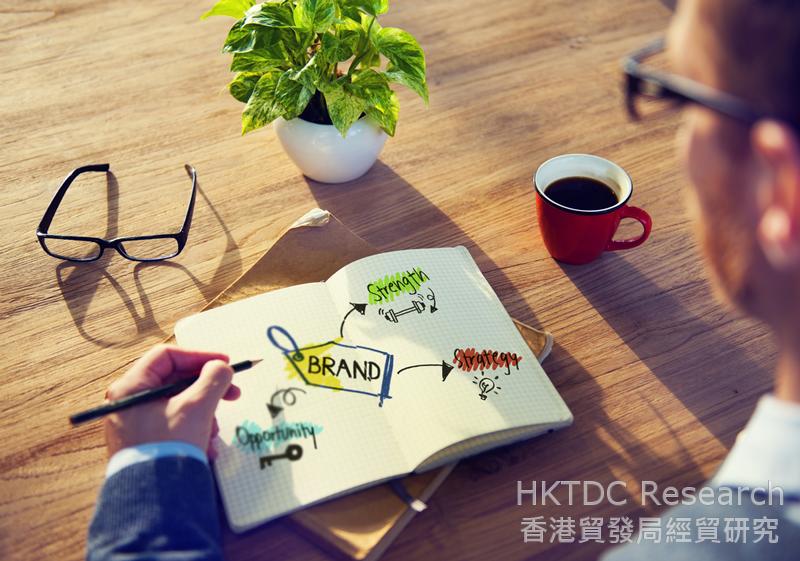“Going Out” to Capture Belt and Road Opportunities (Expert Opinion 2): Managing Brand Value
“Going Out” to Capture Belt and Road Opportunities (Expert Opinion 2): Managing Brand Value
China is currently the second largest economy and one of the biggest consumer markets in the world. However, in the face of such challenges as faltering global economic growth as well as slower pace of domestic sale and export, many Chinese enterprises are actively pursuing transformation and upgrading as well as developing brand business in the hope of increasing the value-added of their products or services, enhancing competitiveness, and exploring more new markets.
Yet, an expert in branding reminded these companies that they must map out a comprehensive long-term brand strategy, complemented with appropriate market positioning before they can build sustainable brand business. Hong Kong brand designers, who have accumulated rich experience in serving multinational companies, can provide mainland enterprises with one-stop services to develop both the domestic and foreign markets.
Sustainable Brand Strategy

Charles Ng, founding Chairman of the Hong Kong Brands Association and Chief Brand Consultant of Maxi Communications Ltd, told HKTDC Research that mainland manufacturers today are well aware of brand value and are also willing to invest in developing creative new products and new services. However, the resource inputs of many companies in building and promoting brands are insufficient, and some of them have even been distracted by fads and trends, diverting from the original course of business development.
Moreover, many companies lack long-term development strategy, yet hope to develop national and even international brands by using regional brand development methods. But with insufficient resource inputs, it is difficult for them to achieve the expected effects of transformation and upgrading.
Citing an example, Ng said: “At one stage when the economy underwent rapid growth, luxury consumer trends dominated the mainland market. This had attracted many catering and consumer goods companies to jump on the bandwagon and change their marketing strategy overnight in pursuit of short-term profit before clearly considering their business development.
“After the fads had receded, these companies were at a loss and some even quickly changed their market positioning, disrupting the sustainability of their promotion and marketing activities. This inevitably sent out confusing signals to consumers and the market, directly undermining their brand and corporate image.
“An all-round strategy is of prime importance to the development of brand business. For instance, in recent years online shopping has been gaining increasing popularity in the mainland, which has made it impossible for companies to ignore exploring online business opportunities. But companies positioned in the higher end of the market must consider how to balance the development of online and offline business in order to avoid giving people the impression of trading down, which may damage their overall brand image. And in search of short-term profit, these companies may also overlook the need for all-round development.”
Managing Overall Brand Value
Ng also cautioned against a one-size-fits-all approach to branding internationally. He said: “As for ‘going out’ to develop overseas markets, although the purchasing power of some of the Belt and Road markets is different to that of developed countries, mainland enterprises still have to avoid competing on price only along the Belt and Road routes at the expense of their overall sales and brand development strategy. This may impact their business development in other markets under the current trend of globalisation and free flow of information.
“Using an inappropriate strategy to develop individual markets is sure to affect the overall corporate image and brand value of the enterprise and may do more harm than good.”

Ng believes that markets with long-term development potential abound in the Belt and Road countries. Taking this and the limited number of emerging markets into account, mainland enterprises should consider identifying the right Belt and Road markets first before other competitors come on the scene, so that they can make use of effective promotion and marketing strategies ahead of others to tap the potential of local markets.
Many mainland enterprises are actively “going out” to search for services supporting brand design and promotion strategy in the hope of enhancing their brand business, as well as developing both the mainland and overseas markets. Ng pointed out that Hong Kong brand designers, who are well-versed in international market trends, familiar with Chinese culture and consumer habits, and experienced in serving multinational companies, can effectively help mainland enterprises in “going out”.
By filling the gap in mainland enterprises’ understanding of foreign cultures and business practices, they can assist clients in developing brand business in both the mainland and foreign markets. Ng added: “In addition to brand design, Hong Kong has a wide range of related service industries, such as marketing, product design, corporate management and training, which can give timely support to Hong Kong designers providing mainland enterprises with one-stop services. This is one of Hong Kong’s advantages.”
| Content provided by |

|






